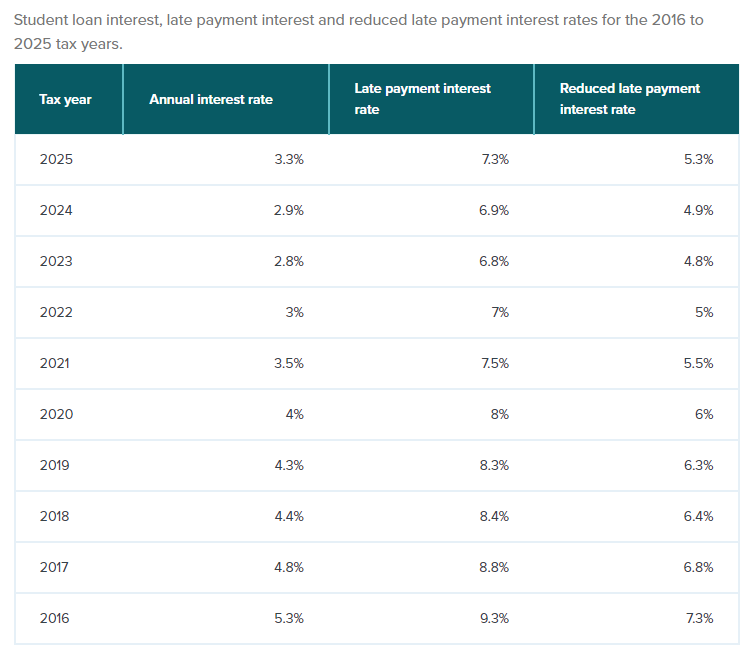The Cost of Neglecting Student Loan Repayments articles
Date
16 Jul 2024
Related Expertise
IRD Focuses on Overseas Student Loan Compliance
In Budget 2024, the Inland Revenue Department (IRD) received $29 million specifically earmarked for enhancing compliance efforts, aimed particularly at overseas-based individuals with student loan obligations.[1] This funding reflects the IRD’s heightened focus on addressing non-compliance among those who, whether due to challenging circumstances or a deliberate choice, have not fulfilled their tax responsibilities. As part of these efforts, the IRD plans to intensify its scrutiny of overseas-based student loan borrowers, particularly those who own property in New Zealand. This includes a targeted campaign to contact individuals in this category, emphasizing the importance of meeting loan repayment obligations, especially if they hold investment properties within New Zealand. The IRD’s increased resources underscore its commitment to improving tax compliance and ensuring fairness in the tax system, aligning with broader government priorities to manage and reduce national tax debt effectively.
Case Study: A Cautionary Tale
Consider the cautionary tale of a student who left New Zealand without notifying the Inland Revenue Department (IRD) or establishing a repayment plan for their student loan. Over the years, the student accumulated over $200,000 in interest and penalties due to non-payment while residing abroad. Their failure to engage with the IRD promptly led to escalating debt, compounded by penalty interest rates and the involvement of debt collection agencies in his current country.
This student’s situation underscores the importance of proactive management and communication with the IRD when relocating overseas. Had the student notified the IRD before their departure or within six months of leaving New Zealand, he could have explored options such as temporary repayment suspensions or negotiated manageable repayment terms. Seeking professional advice early on could have potentially mitigated the financial consequences he faced.
Key Lessons Learned:
- Proactive Engagement: Inform the IRD before leaving New Zealand or promptly upon departure to discuss repayment options and avoid penalties.
- Avoiding Accrued Interest: Regularly making payments or applying for temporary suspension can prevent interest from accumulating excessively.
- Seeking Professional Guidance: Consulting with debt management experts or financial advisors can provide insights into navigating IRD regulations and minimizing debt escalation.
This student’s experience serves as a stark reminder of the repercussions of neglecting student loan obligations while living overseas. By learning from such examples and taking proactive steps, individuals can effectively manage their student loan debt and maintain financial stability abroad.

Understanding Interest and Penalties:
Leaving New Zealand could lead to the loss of your interest-free student loan status.[2]
If you spend approximately 5 out of every 6 months outside New Zealand, your once interest-free loan risks being reclassified as overseas-based. This change means your repayments are no longer based on your income but rather on your loan balance, potentially increasing your debt significantly.
Maintaining your New Zealand-based borrower status hinges on the ’32-day rule’: you must spend 32 days or more in NZ within any 184-day period to avoid interest charges. Falling short of this requirement results in interest being backdated to the day after you leave New Zealand.
Failure to make timely payments can lead to penalty interest rates, further inflating your overall debt. Additionally, the IRD may involve debt collection agencies in your current location to enforce repayment.

Temporary Repayment Suspension:
You can apply for a temporary repayment suspension by notifying the IRD before leaving New Zealand or within six months of departure. While this suspension pauses repayments, interest continues to accrue on your loan. Failing to make required payments abroad may lead to increased debt due to penalty interest rates upon your return to New Zealand.
Interest and fees accumulate on your student loan while overseas. Understanding these implications and managing repayments accordingly is critical. Certain conditions may allow your loan to remain interest-free overseas, so check with the IRD for eligibility criteria. Use a student loan repayment calculator to strategize between minimum versus extra payments for effective repayment plans.
Repayment Options:
Living in countries like Australia, the United Kingdom, Europe, Canada, or the United States allows you to set up direct debit payments through your MyIR account. Other options include credit or debit cards and money transfers. Ensure timely payment processing to avoid penalties or interest. Be aware of potential international transfer fees charged by your provider or New Zealand bank.
Seeking Professional Advice:
Navigating overseas student loan repayment complexities often benefits from professional advice. Debt collection experts can offer valuable insights and negotiate with the IRD on your behalf, potentially reducing penalties and structuring manageable repayment plans. Proactively engaging these services can prevent debt escalation.
Managing New Zealand student loan debt while abroad requires a proactive and informed approach. Understanding interest rates, penalty implications, and leveraging available financial tools are crucial. By maintaining communication with the IRD, seeking professional advice, and adhering to repayment schedules, you can effectively manage your student loan obligations and secure a stable financial future while enjoying your overseas experience.
For professional advice, contact our Special Counsel Dave Ananth for a free 15-minute consultation.
[1] IRD starts unannounced visits to construction sites (1news.co.nz)
[2] https://www.ird.govt.nz/student-loans/going-overseas-or-returning-to-new-zealand/i-am-going-overseas
Subscribe
Get insights sent direct to your email.




















